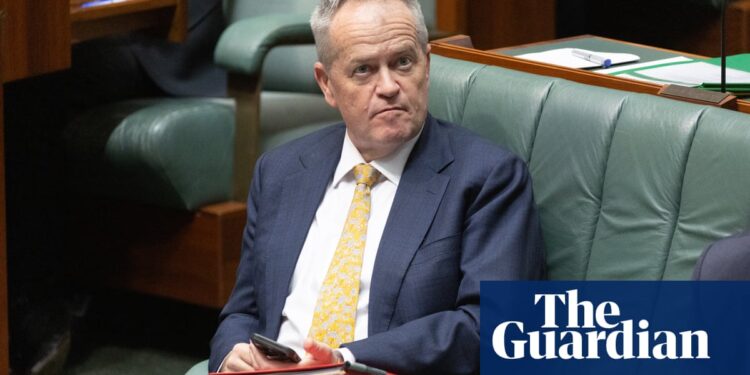The national disability insurance scheme minister, Bill Shorten, has assured participants they will be able to request funding for support that is not pre-approved if it is genuinely needed under Labor’s changes.
The comments come as the Greens and disability advocacy groups warn a draft list outlining which supports and services can be funded, and which ones cannot, will leave some participants worse off.
Shorten on Sunday accused the Greens of spreading “misinformation” about the changes to the NDIS, labelling them “dangerous”.
The minister told the ABC’s Insiders program the scheme would receive more funding over the coming years but its growth rate would be curbed. Shorten said “extremists” were peddling “fear and misinformation” about the changes.
“I’ve spent my whole 17 years in parliament fighting for the NDIS and the reason why, perhaps, I sound a little passionate today is [because] I listen to the people who say ‘do nothing change is too hard’,” Shorten said on Sunday.
“These people are dangerous because if we don’t do something about the cost growth there will be no NDIS.”
The NDIS legislation passed last week is the first in a series of bills the government says will make the scheme financially sustainable and better-suited to people with disability after the release of the NDIS review last year.
Projections suggest the annual cost of the NDIS will grow from $35.2bn in 2022-23 to more than $50bn in 2025-26. The NDIS could cost $90bn a year within a decade.
The federal budget in May showed the changes were expected to bank the federal government $14.4bn in savings over the next four years.
The commonwealth, along with state and territory governments, agreed at national cabinet in 2023 to an annual growth target of 8% from 1 July 2026.
The legislation, which was passed on Thursday with amendments, changes how participants receive plan budgets and gives more powers to the head of the agency in charge of the scheme to prevent top-up payments on a participant’s budget.
A list – still under consideration – will outline which items and supports can be accessed under the scheme and which ones cannot. For example, household appliances and holidays cannot be funded by NDIS budgets.
The changes have attracted fierce criticism from the Greens and some disability advocacy groups, which have labelled the laws a “betrayal” of people with disabilities and urged further consultation with affected groups.
Shorten said the legislation allowed for flexibility on some items.
“If you have a particular need and the item is not on the list, but there’s a way [in] which it supports you with your disability, well, then there’ll be a substitution provision allowed that’s in the act,” he said on Sunday.
“You might need a smartwatch because it regulates your temperature. You’ve got a particular condition that, you know, if your temperature starts really fluctuating, you’re in trouble. That’s fine. Come and talk to the agency about that. But we’re not going to say everyone gets a smartwatch.”







